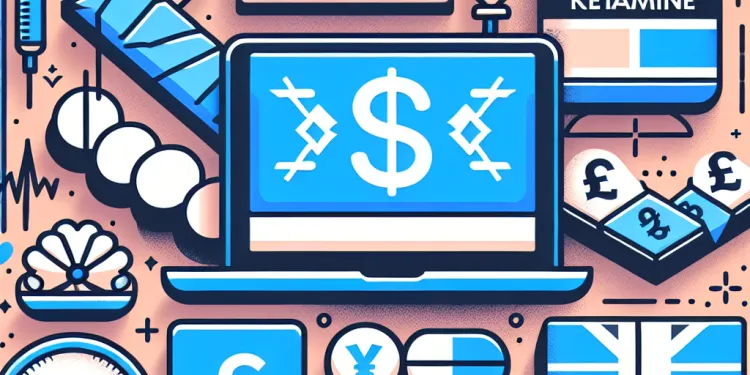
Find Help
More Items From Ergsy search
-
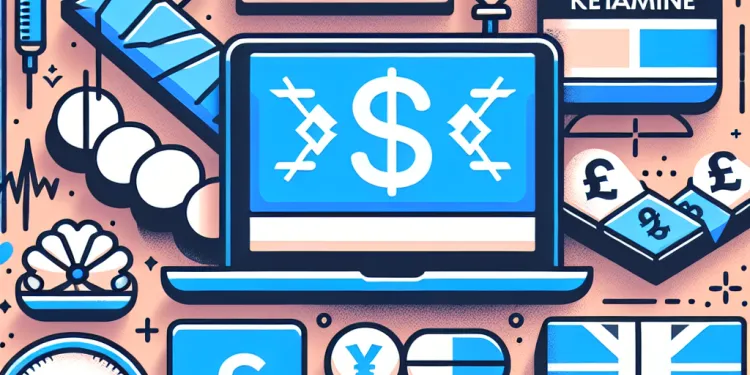
Is ketamine addictive?
Relevance: 100%
-

What is the potential for addiction with ketamine?
Relevance: 93%
-
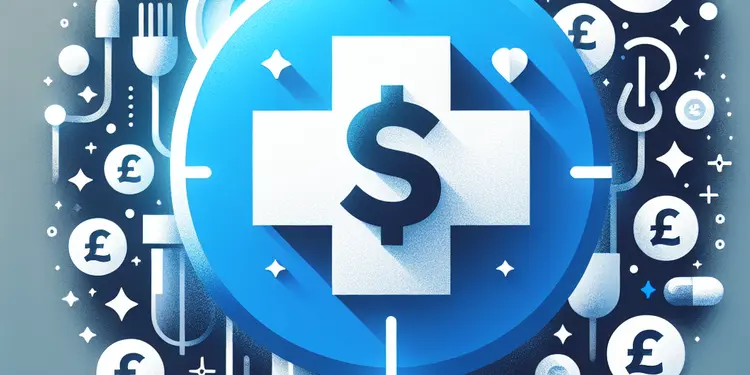
Are there any treatment programs for ketamine addiction?
Relevance: 89%
-
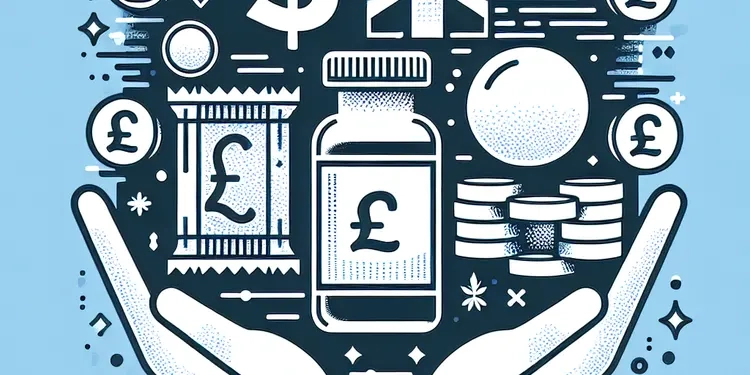
Is Ketamine a Class B drug?
Relevance: 63%
-
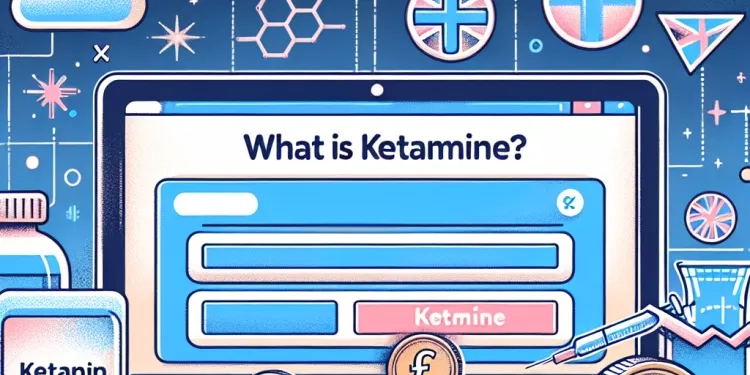
What is Ketamine?
Relevance: 62%
-

What is the classification of ketamine?
Relevance: 60%
-

Is ketamine considered a controlled substance in the United States?
Relevance: 58%
-
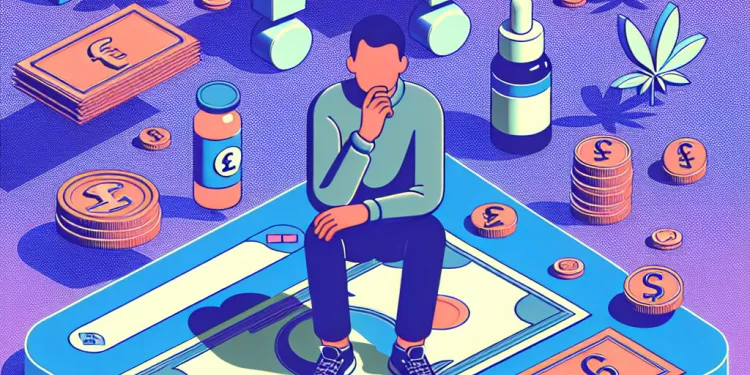
Is ketamine a controlled substance?
Relevance: 56%
-
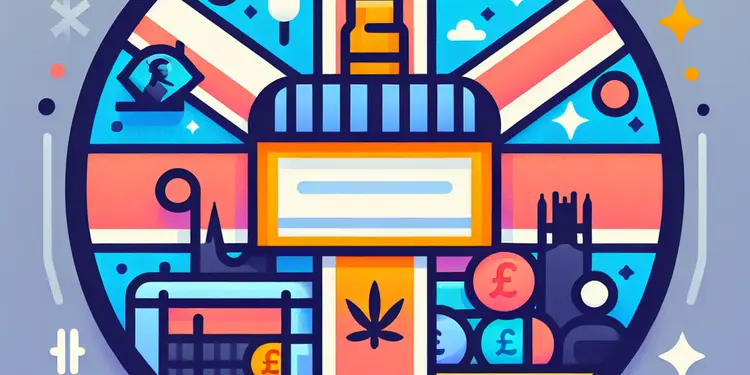
What does it mean for ketamine to be a Class B drug in the UK?
Relevance: 55%
-

Is ketamine legal?
Relevance: 55%
-

Is ketamine safe for everyone?
Relevance: 53%
-

What conditions is ketamine used to treat?
Relevance: 53%
-

How does ketamine work?
Relevance: 52%
-
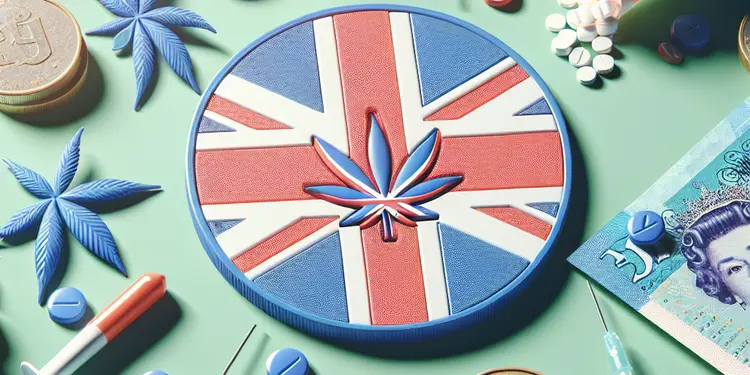
Can ketamine be used for recreational purposes legally?
Relevance: 51%
-

What is ketamine infusion therapy?
Relevance: 51%
-

Does ketamine have long-term effects?
Relevance: 50%
-
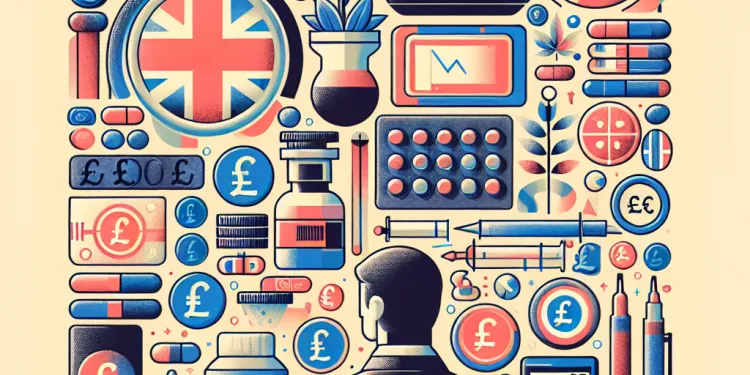
What are the common side effects of ketamine?
Relevance: 50%
-

Is it legal to import ketamine?
Relevance: 50%
-
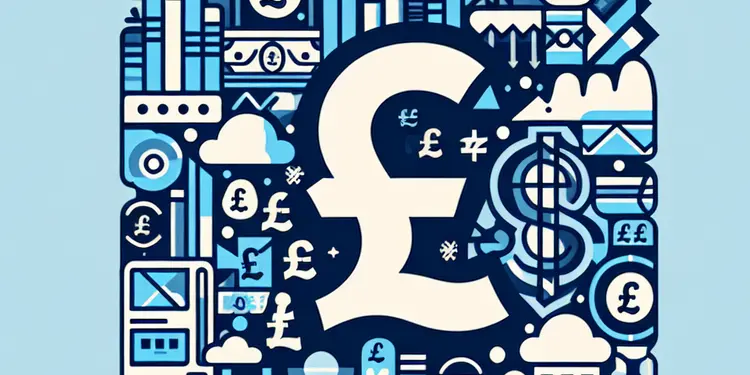
What are the known side effects of ketamine usage?
Relevance: 48%
-
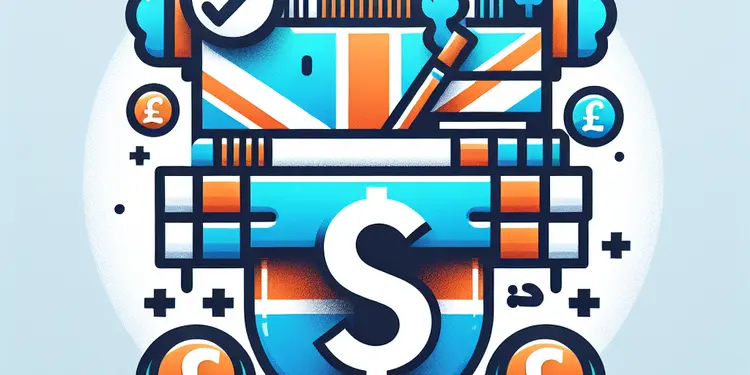
Do nicotine pouches cause addiction?
Relevance: 47%
-
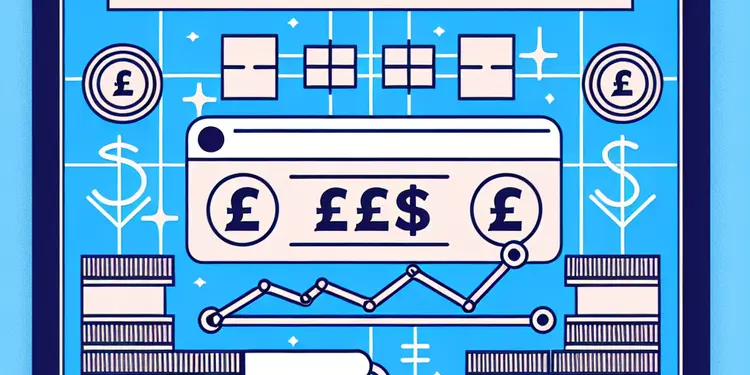
Is the production of ketamine regulated?
Relevance: 47%
-
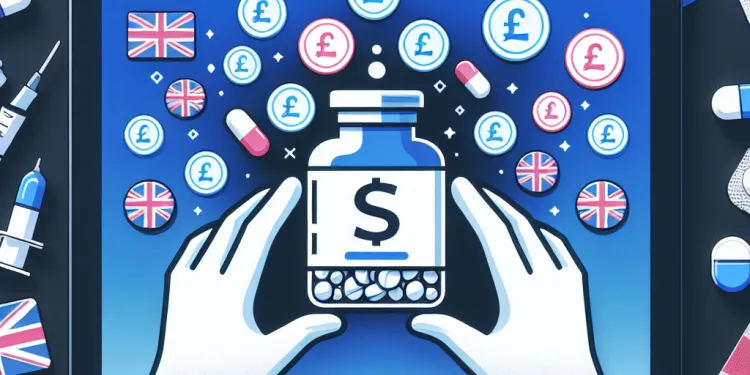
How is ketamine administered?
Relevance: 47%
-
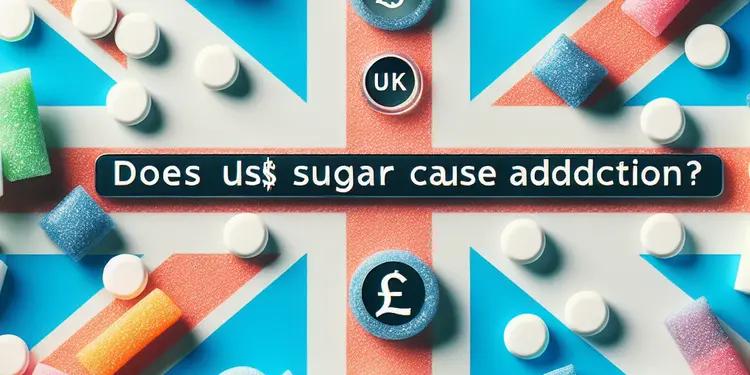
Does sugar cause addiction?
Relevance: 47%
-
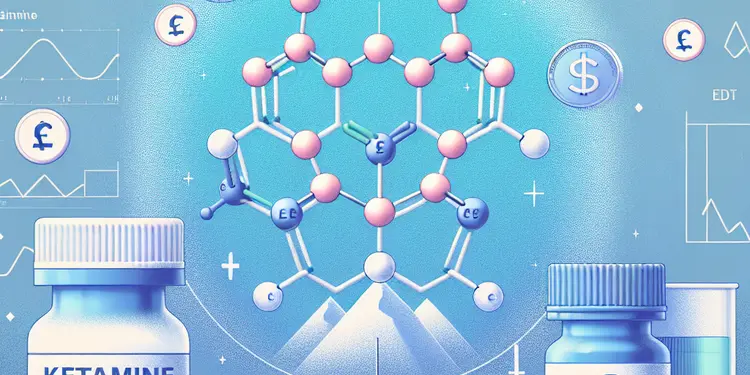
What are the medical uses of ketamine?
Relevance: 45%
-
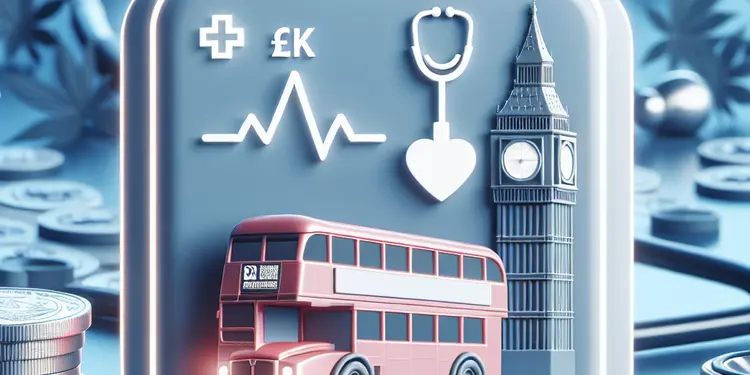
Are there any legal uses for ketamine?
Relevance: 45%
-

How is ketamine different from traditional antidepressants?
Relevance: 45%
-
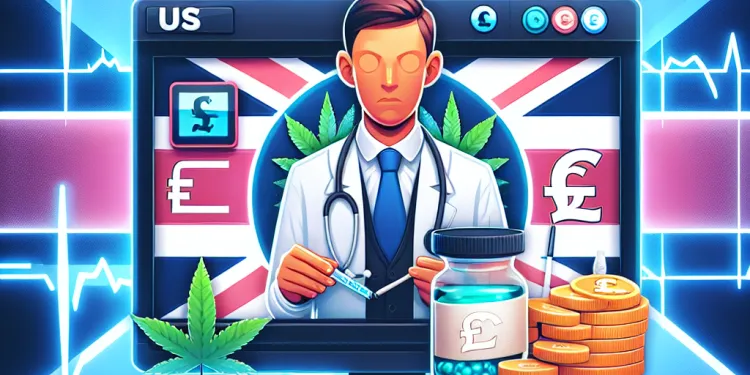
What precautions are necessary when using ketamine?
Relevance: 45%
-

Can binge drinking lead to addiction?
Relevance: 45%
-
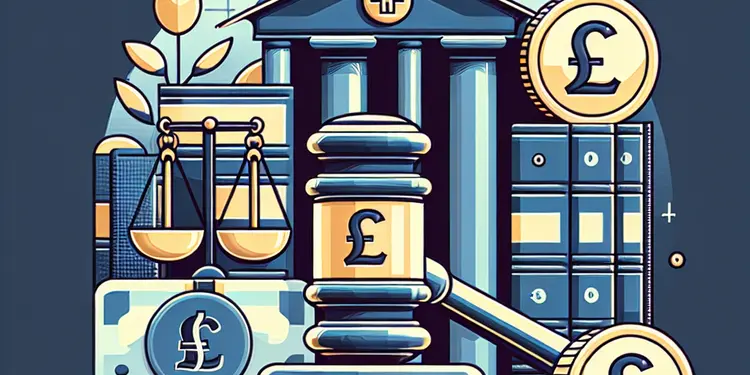
What is the penalty for supplying ketamine in the UK?
Relevance: 45%
-
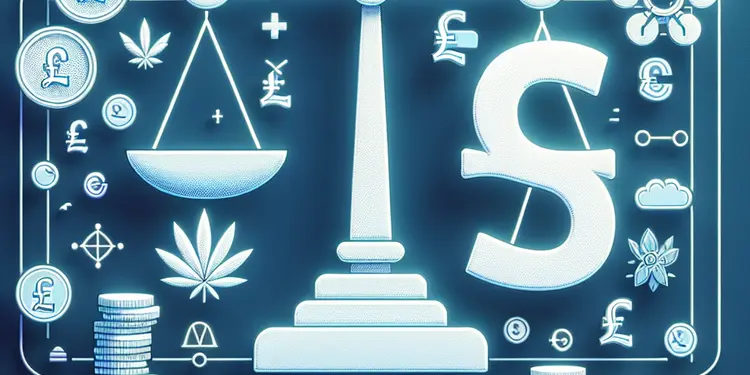
What is the penalty for possessing ketamine in the UK?
Relevance: 44%
-
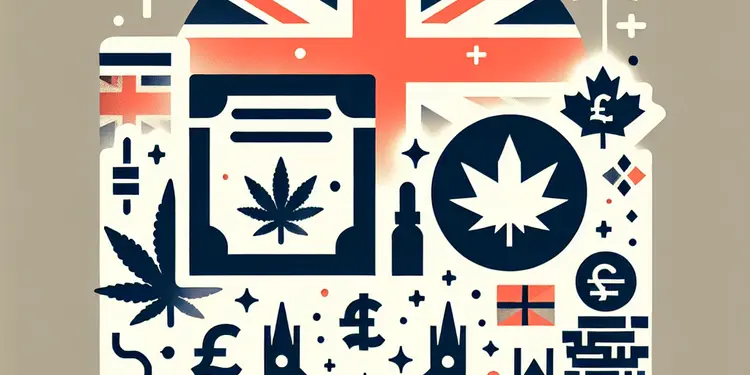
What is the legal status of ketamine in Canada?
Relevance: 44%
-
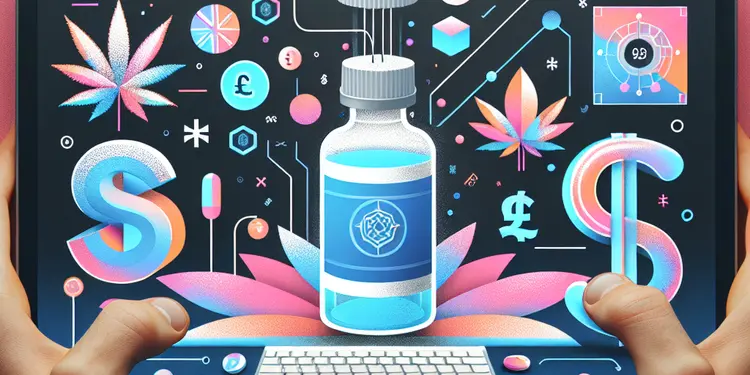
What is the potential for addiction with ketamine?
Relevance: 44%
-

Why was ketamine reclassified from Class C to Class B in the UK?
Relevance: 44%
-

How is ketamine used in veterinary medicine?
Relevance: 44%
-

How long do the effects of ketamine last?
Relevance: 43%
-

What is the difference between ketamine and esketamine?
Relevance: 43%
-
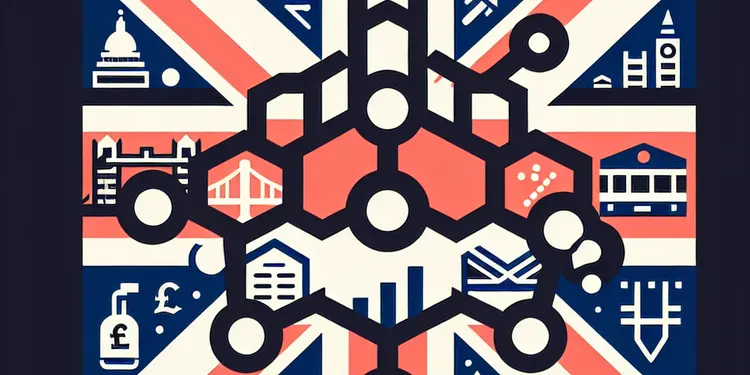
Does the classification of ketamine differ between countries?
Relevance: 43%
-
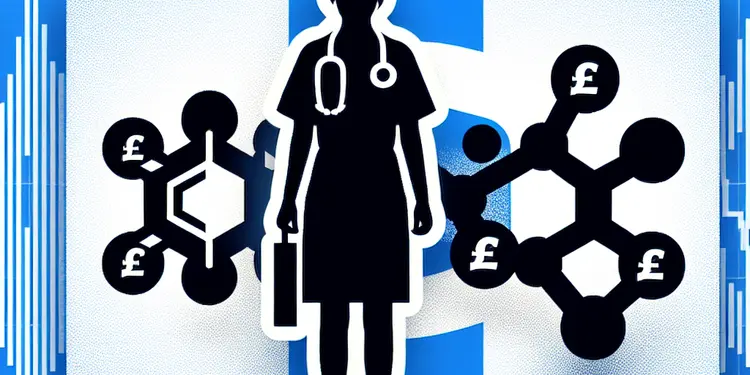
Can ketamine be prescribed for mental health conditions?
Relevance: 43%
-

Has ketamine's classification changed over time?
Relevance: 42%
-
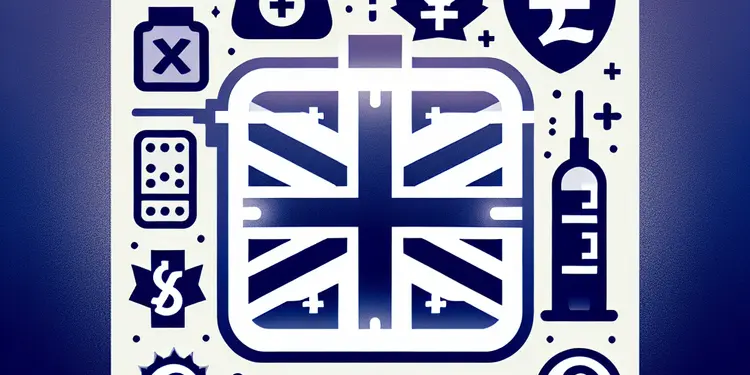
How can I legally obtain ketamine for medical use?
Relevance: 42%
Introduction to Ketamine
Ketamine is a medication primarily known for its use as an anesthetic in medical and veterinary settings. In recent years, it has garnered attention for its potential in treating depression and other mental health conditions. Despite these beneficial uses, there are concerns about its potential for abuse and addiction, especially in recreational contexts.
What Makes Ketamine Potentially Addictive?
Ketamine acts on the brain's glutamate system, which is different from many other commonly abused drugs that affect dopamine, such as cocaine or opioids. However, it can still produce feelings of dissociation and hallucinations, making it appealing for recreational use. Over time, some users may develop a psychological dependency on the euphoric and dissociative effects of the drug.
Signs of Ketamine Dependence
Even though ketamine is not traditionally considered physically addictive like opioids or alcohol, some individuals may develop a pattern of psychological dependence. Signs of ketamine dependence can include a persistent craving for the drug, using it in larger amounts or more frequently than intended, and continuing its use despite negative personal or professional consequences.
Dangers of Ketamine Abuse
Frequent and heavy use of ketamine can lead to a range of problematic health issues. This includes cognitive impairments such as memory problems and difficulties with attention and learning. Additionally, ketamine can cause urological damage, including kidney problems and painful urinary tract symptoms, a condition sometimes referred to as "ketamine bladder." The potential for accidents and injury also increases under the influence of the drug due to its dissociative effects.
Treatment and Support for Ketamine Addiction
For those struggling with ketamine use, there are several treatment options available in the UK. These generally include psychological therapies such as cognitive behavioural therapy (CBT), which aims to address the underlying behaviours and thought patterns contributing to substance use. Support from healthcare providers and support groups, including mutual aid groups like Narcotics Anonymous, can also be beneficial. Finding comprehensive support is crucial for managing and overcoming dependence on ketamine.
Conclusion
While ketamine has legitimate medical uses, it does carry a risk of psychological dependence for some individuals, especially when used recreationally. Awareness and understanding of the risks associated with ketamine use are vital for preventing and addressing potential issues of abuse and dependence. If you or someone you know is struggling with ketamine use, seeking professional help is an important step.
Introduction to Ketamine
Ketamine is a medicine that doctors and vets use to help you feel no pain during surgery. Recently, people have been talking about it because it might help with depression and other mental issues. But using ketamine too much can be bad. People might get addicted, especially if they use it for fun.
What Makes Ketamine Potentially Addictive?
Ketamine changes how the brain works. It affects a part of the brain called glutamate. This is different from drugs like cocaine or opioids, which affect dopamine. Ketamine can make you feel strange and see things that aren't there. Some people like this feeling and may want to keep using it. This can lead to them relying on the drug to feel good.
Signs of Ketamine Dependence
Even though ketamine is not like drugs that make the body feel addicted, like alcohol, some people can feel like they need it. Signs that someone might be relying on ketamine include always wanting to use it, using it more than they planned, and keeping on using it even if it causes problems in their life.
Dangers of Ketamine Abuse
Using a lot of ketamine can be bad for health. It can make it hard to remember things and focus. It can also hurt your kidneys and make going to the bathroom painful, a problem called "ketamine bladder." You can also get hurt easier when using ketamine, because you might not be fully aware of what's happening around you.
Treatment and Support for Ketamine Addiction
If someone is having trouble with ketamine, there are ways to get help in the UK. Talking therapies like cognitive behavioural therapy (CBT) can help. They teach you to change how you think and act about drugs. Doctors and groups like Narcotics Anonymous can support you too. Getting help from others is important to stop using ketamine.
Conclusion
Ketamine can be useful for doctors, but using it too much can lead to problems. It's important to know the risks of using ketamine for fun. If you or someone you know is having problems with ketamine, getting help from a professional is a good idea.
Frequently Asked Questions
What is ketamine?
Ketamine is a medication primarily used for starting and maintaining anesthesia. It produces a trance-like state while providing pain relief, sedation, and memory loss.
Is ketamine addictive?
Ketamine can be addictive. While it is used medically, some individuals misuse it for its dissociative and hallucinogenic effects, leading to potential abuse and addiction.
What are the signs of ketamine addiction?
Signs of ketamine addiction include cravings, increased tolerance, withdrawal symptoms, neglecting responsibilities, and continued use despite negative consequences.
How does ketamine affect the brain?
Ketamine affects the brain by interacting with NMDA receptors, altering the neurotransmitter glutamate, and resulting in changes to mood, perception, and cognition.
Can ketamine be used safely?
When used under medical supervision, ketamine can be safe and effective for anesthesia or treatment-resistant depression. However, recreational use poses significant risks.
What are the withdrawal symptoms of ketamine?
Withdrawal symptoms from ketamine may include cravings, fatigue, anxiety, depression, shaking, and sweating.
Can ketamine addiction be treated?
Yes, ketamine addiction can be treated with a combination of behavioral therapies, counseling, and support groups. Medical supervision may also be necessary.
What are the long-term effects of ketamine abuse?
Long-term effects can include urinary tract damage, memory impairment, mood disorders, and potential liver and kidney damage.
Is there a risk of overdose with ketamine?
Yes, taking large amounts of ketamine can lead to overdose, characterized by severe sedation, respiratory depression, and potentially life-threatening symptoms.
How can ketamine addiction be prevented?
Ketamine addiction can be prevented by using the drug only as prescribed and under medical supervision, avoiding recreational use, and being aware of the risks associated with misuse.
What are the short-term effects of ketamine use?
Short-term effects include dissociation, hallucinations, confusion, dizziness, increased heart rate, and potential nausea.
Who is most at risk for ketamine addiction?
Individuals who use ketamine recreationally or those with a history of substance abuse are at higher risk for developing an addiction.
How is ketamine administered medically?
Medically, ketamine is typically administered through intravenous (IV) injection or infusion, and sometimes intramuscularly (IM) or orally for therapeutic uses.
What is the legal status of ketamine?
Ketamine is classified as a Schedule III controlled substance in the United States, meaning it has accepted medical uses but also a potential for abuse and dependence.
Are there alternatives to ketamine for medical use?
Yes, there are alternative anesthetics and pain management therapies, as well as other treatments for depression and mental health conditions.
What role does mental health play in ketamine addiction?
Mental health issues, such as depression or anxiety, may contribute to ketamine misuse as individuals seek relief from symptoms, potentially leading to addiction.
Can ketamine be used to treat addiction?
Emerging research suggests ketamine may have potential as a treatment for certain addictions under strict medical supervision, though further studies are needed.
Is ketamine use common in nightlife scenes?
Yes, ketamine is often used recreationally in club and nightlife settings for its dissociative effects, contributing to its potential for abuse.
What should you do if you suspect someone is addicted to ketamine?
If you suspect someone is addicted to ketamine, encourage them to seek professional help and support them in finding treatment options.
What is the role of counseling in treating ketamine addiction?
Counseling is crucial in treating ketamine addiction as it helps address underlying issues, develop coping strategies, and support recovery.
What is ketamine?
Ketamine is a type of medicine. It helps people feel less pain. Sometimes, doctors use it when you have surgery. It can also make you feel very relaxed.
If you find reading hard, you might like using pictures or videos to help understand. You can also ask someone you trust to explain it to you.
Ketamine is a type of medicine. Doctors use it to help people go to sleep for surgery. It makes you feel like you are dreaming. It also helps so you don’t feel pain, helps keep you calm, and makes you forget what happened.
Can people get hooked on ketamine?
Ketamine is a drug. Some people might feel a strong need to use it over and over. This is called getting "hooked" or "addicted."
Doctors or health experts can help people who have this problem. Talking to someone you trust is a good first step.
Ketamine can be habit-forming. Doctors sometimes use it as medicine. But some people use it to feel strange and see things that are not real. This can lead to using it too much and becoming addicted.
What shows that someone might be addicted to ketamine?
Signs that someone might be addicted to ketamine are:
- They really want to use it all the time.
- They need more of it to feel the same way as before.
- They feel bad when they stop using it.
- They are ignoring important things they need to do.
- They keep using it even when it causes problems.
If it's hard to read this, you can use tools like a dictionary or ask someone you trust for help. Reading aloud or breaking text into smaller parts might also help you understand better.
What does ketamine do to the brain?
Ketamine is a drug.
When you take ketamine, it changes how your brain works.
This can make you feel strange or see things that are not there.
If you want to learn more, ask a grown-up to help you.
Use pictures or videos to understand better.
Ketamine changes the way the brain works. It does this by working with special parts of the brain called NMDA receptors. It also changes a brain chemical called glutamate. This can make you feel different, see things in a new way, and change how you think.
Is Ketamine Safe to Use?
Ketamine is a strong drug. People use it in hospitals. Doctors give it to help with pain or to make people sleep during surgery.
But using ketamine can be risky. If people use it incorrectly, it can hurt their body and mind.
Always talk to a doctor before using ketamine. They know how to use it safely.
Tools like pictures or videos can help explain more about ketamine. They make it easier to understand.
Ketamine can be safe if a doctor uses it for a sleeping medicine or to help with really bad depression. But using ketamine just for fun can be dangerous.
To make reading easier, try using pictures or reading out loud. You can also ask someone you trust to help you understand the words.
What happens when you stop taking ketamine?
When someone stops taking ketamine, they might feel different or unwell. This is called withdrawal. Here are some things that can happen:
- They might feel sad or upset.
- They could have trouble sleeping.
- They might feel nervous or worried.
- They could have strong cravings to take ketamine again.
If you or someone you know is stopping ketamine and needs help, there are things you can do:
- Talk to a doctor or a trusted adult.
- Join a support group to share feelings and get advice.
- Try to relax with deep breaths or listening to calm music.
When people stop using ketamine, they might feel:
- A strong want to use it again
- Very tired
- Worried or nervous
- Sad
- Shaky
- Hot and sweaty
Tools like calming apps or talking to a friend can help with these feelings.
Can people get help to stop using ketamine?
Yes, people can get help to stop using ketamine. There are ways to help.
Here are some ways to get support:
- Talk to a doctor or nurse for advice.
- Join a support group with others who are stopping.
- Family and friends can help too.
It is important to ask for help if you need it.
Yes, people who are addicted to ketamine can get help. They can go to therapy, talk to counselors, and join support groups. Doctors might also help them get better.
What happens if you use too much ketamine for a long time?
Using this for a long time can hurt your body. It can make it hard to remember things. It can change how you feel and hurt your mood. It can also hurt parts inside of you like your pee tube, liver, and kidneys.
Can you take too much ketamine?
Yes, taking too much ketamine can be very dangerous. It can make you very sleepy, slow down your breathing, and might be life-threatening.
If you need help understanding, try using tools like text-to-speech to listen to the information or ask someone you trust to explain it to you.
How can we stop getting hooked on ketamine?
To stop getting hooked on ketamine: - **Learn** about ketamine and how it can be harmful. - **Talk** to someone you trust if you feel you want to try it. - **Avoid** places or people where there's a lot of ketamine. - **Find** fun and healthy activities to do instead. If you ever feel you need help, that's okay! You can: - **Call** a helpline to talk to someone who knows what to do. - **Join** a group where people support each other to stay away from drugs.You can avoid getting addicted to ketamine by following these steps:
- Only use ketamine if your doctor tells you to.
- Take ketamine only the way your doctor says.
- Do not use ketamine for fun.
- Learn about the dangers of using ketamine in the wrong way.
Ask your doctor if you have questions. If you're worried or need help, you can talk to someone you trust or call a help line.
What happens right after using ketamine?
When someone uses ketamine, they can feel its effects quickly.
Here are some things that might happen:
- You might feel relaxed or sleepy.
- Things around you may look or feel strange.
- It can make you feel dizzy or confused.
- Sometimes, you might see or hear things that aren't real.
- You might have trouble moving or talking.
If you or someone you know needs help, talk to an adult you trust or a doctor. They can give you advice and support. Using pictures or talking with someone might also help you understand more.
Here is what can happen for a short time: you might feel like you are not really there, see things that are not real, feel mixed up, get dizzy, have your heart beat faster, and maybe feel sick.
Who can get addicted to ketamine the most?
People who take ketamine often might get addicted. Here is some advice: - Try to talk to a trusted adult or doctor if you have worries. - Use apps or books that help you understand drugs better. - Ask someone to help you read more about ketamine. Always stay safe and ask for help if you need it.People who use ketamine for fun or have used drugs before are more likely to get addicted.
How do doctors give ketamine to patients?
Doctors usually give ketamine with a needle in your arm or sometimes in your muscle. They can also give it by mouth. This is to help people feel better.
Is ketamine legal or illegal?
In the United States, ketamine is a drug that doctors can use to help people. It is called a Schedule III controlled substance. This means it is allowed for medical use but can be dangerous if taken too much.
If you need help understanding words about drugs, you can use online tools like a dictionary or ask someone you trust to explain it to you.
Are there other medicines like ketamine?
Yes, there are different medicines and ways to help with pain and sleepiness. There are also other treatments for feeling sad or having mental health problems.
How does mental health affect ketamine addiction?
Mental health is about how we feel, think, and act. It is very important for our overall health.
Ketamine is a drug that can change how we feel and see things. Some people can get addicted to it. This means they find it hard to stop using it.
If someone has mental health problems, it might be easier for them to get addicted to ketamine. For example, if they are sad or worried a lot, they might use ketamine to feel better.
To help with ketamine addiction, it's good to talk to a doctor or a therapist. They can help people feel better and stop using the drug.
Sometimes, using tools like writing a diary can help people talk about their feelings. Drawing pictures can also help to show feelings when words are hard to find. These tools can be very supportive.
Problems with mental health, like feeling very sad or worried, might make people use ketamine. They might do this to try and feel better, but it can sometimes lead to using too much ketamine.
Can ketamine help people stop being addicted?
Some new studies show that ketamine might help treat some addictions. But, doctors need to be very careful when using it, and more research is needed.
Do people often use ketamine at parties and clubs?
Yes, people sometimes use ketamine for fun at clubs and parties. It can make you feel like you're out of your body, which is why some people want to use it too much.
What to Do if You Think Someone is Using Too Much Ketamine?
If you think someone is having trouble with ketamine, help them get professional help. Support them in finding the right treatment.
How can talking to someone help if you are addicted to ketamine?
If you are using too much ketamine and it's a problem, talking to a counselor can help. A counselor is a person who listens and helps you. They can help you understand why you use ketamine and how to stop. They can also teach you ways to feel better without using ketamine.
Here are some things that might help:
- Talking Therapy: Talking about your feelings can help you understand them better.
- Support Groups: Being with others who are also trying to stop can make you feel less alone.
- Relaxation Techniques: Learning to relax can help you feel calm and happy without drugs.
It is important to know that you are not alone, and there are people who can help you feel better.
Talking to a counselor is important for helping people who have a problem with ketamine. It can help them understand why they use it, learn ways to stop, and feel better.
Using tools like simple apps or pictures can make it easier to remember these steps.
Useful Links
This website offers general information and is not a substitute for professional advice.
Always seek guidance from qualified professionals.
If you have any medical concerns or need urgent help, contact a healthcare professional or emergency services immediately.
- Ergsy carfully checks the information in the videos we provide here.
- Videos shown by Youtube after a video has completed, have NOT been reviewed by ERGSY.
- To view, click the arrow in centre of video.
- Most of the videos you find here will have subtitles and/or closed captions available.
- You may need to turn these on, and choose your preferred language.
- Go to the video you'd like to watch.
- If closed captions (CC) are available, settings will be visible on the bottom right of the video player.
- To turn on Captions, click settings .
- To turn off Captions, click settings again.
More Items From Ergsy search
-

Is ketamine addictive?
Relevance: 100%
-

What is the potential for addiction with ketamine?
Relevance: 93%
-

Are there any treatment programs for ketamine addiction?
Relevance: 89%
-

Is Ketamine a Class B drug?
Relevance: 63%
-

What is Ketamine?
Relevance: 62%
-

What is the classification of ketamine?
Relevance: 60%
-

Is ketamine considered a controlled substance in the United States?
Relevance: 58%
-

Is ketamine a controlled substance?
Relevance: 56%
-

What does it mean for ketamine to be a Class B drug in the UK?
Relevance: 55%
-

Is ketamine legal?
Relevance: 55%
-

Is ketamine safe for everyone?
Relevance: 53%
-

What conditions is ketamine used to treat?
Relevance: 53%
-

How does ketamine work?
Relevance: 52%
-

Can ketamine be used for recreational purposes legally?
Relevance: 51%
-

What is ketamine infusion therapy?
Relevance: 51%
-

Does ketamine have long-term effects?
Relevance: 50%
-

What are the common side effects of ketamine?
Relevance: 50%
-

Is it legal to import ketamine?
Relevance: 50%
-

What are the known side effects of ketamine usage?
Relevance: 48%
-

Do nicotine pouches cause addiction?
Relevance: 47%
-

Is the production of ketamine regulated?
Relevance: 47%
-

How is ketamine administered?
Relevance: 47%
-

Does sugar cause addiction?
Relevance: 47%
-

What are the medical uses of ketamine?
Relevance: 45%
-

Are there any legal uses for ketamine?
Relevance: 45%
-

How is ketamine different from traditional antidepressants?
Relevance: 45%
-

What precautions are necessary when using ketamine?
Relevance: 45%
-

Can binge drinking lead to addiction?
Relevance: 45%
-

What is the penalty for supplying ketamine in the UK?
Relevance: 45%
-

What is the penalty for possessing ketamine in the UK?
Relevance: 44%
-

What is the legal status of ketamine in Canada?
Relevance: 44%
-

What is the potential for addiction with ketamine?
Relevance: 44%
-

Why was ketamine reclassified from Class C to Class B in the UK?
Relevance: 44%
-

How is ketamine used in veterinary medicine?
Relevance: 44%
-

How long do the effects of ketamine last?
Relevance: 43%
-

What is the difference between ketamine and esketamine?
Relevance: 43%
-

Does the classification of ketamine differ between countries?
Relevance: 43%
-

Can ketamine be prescribed for mental health conditions?
Relevance: 43%
-

Has ketamine's classification changed over time?
Relevance: 42%
-

How can I legally obtain ketamine for medical use?
Relevance: 42%


